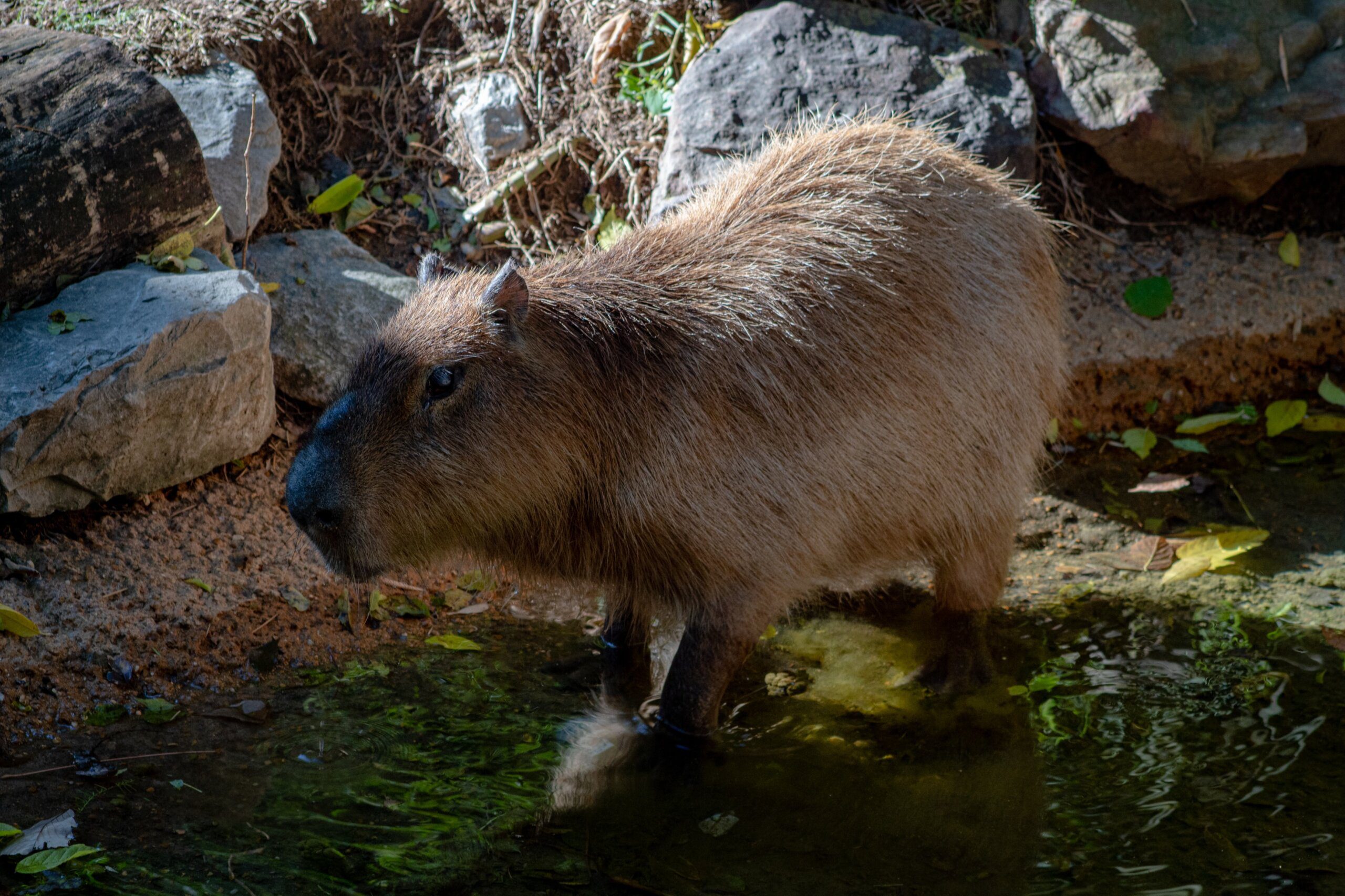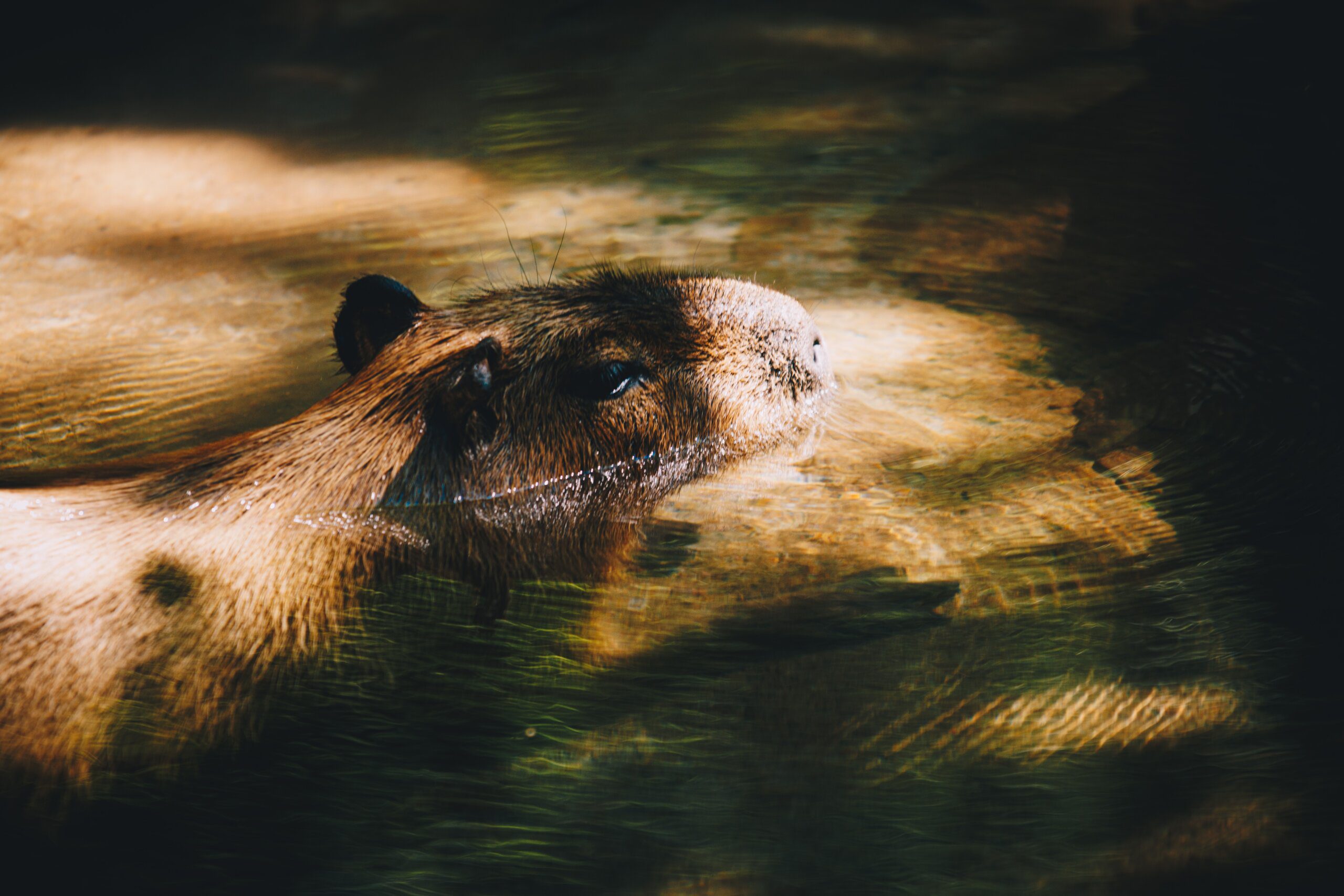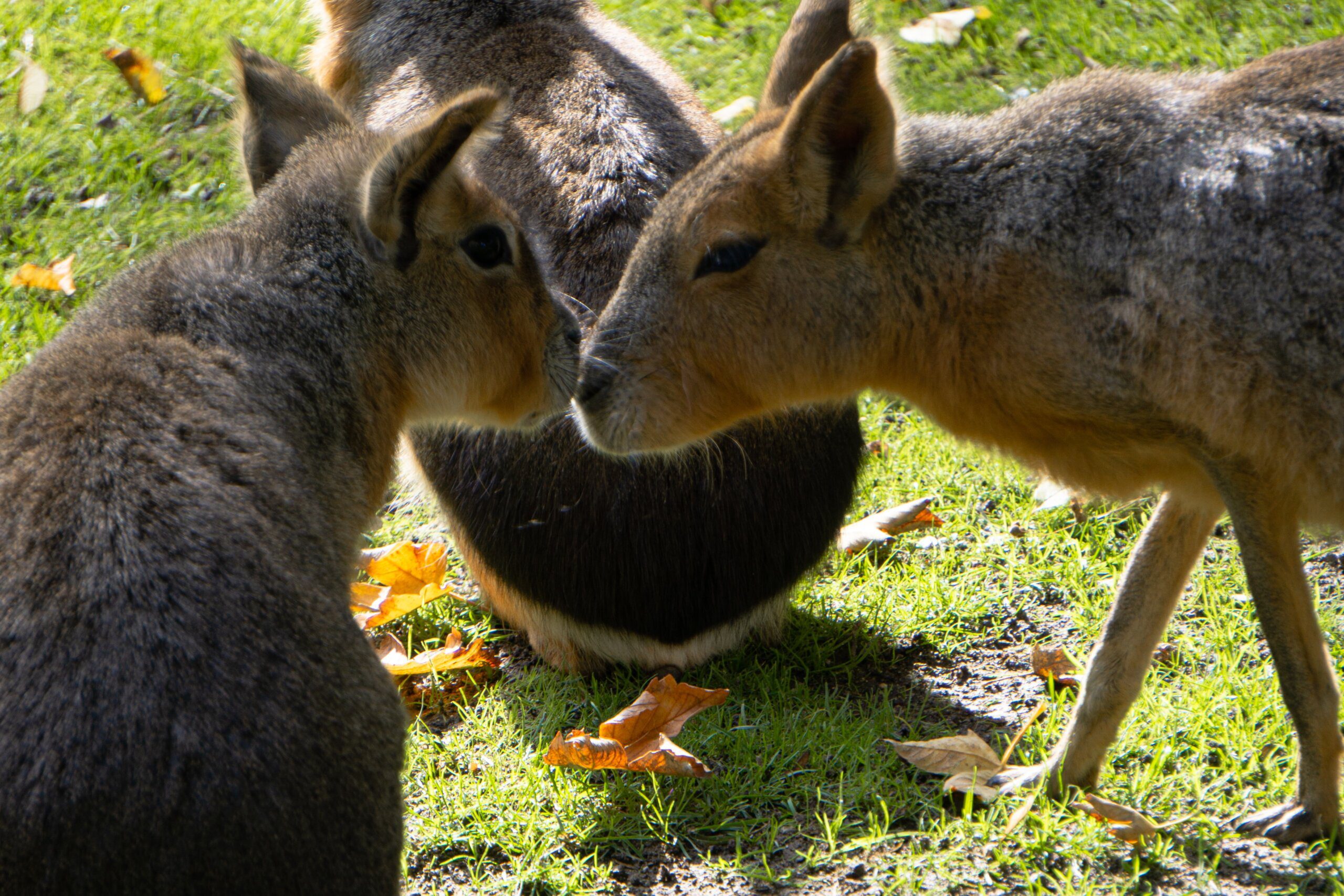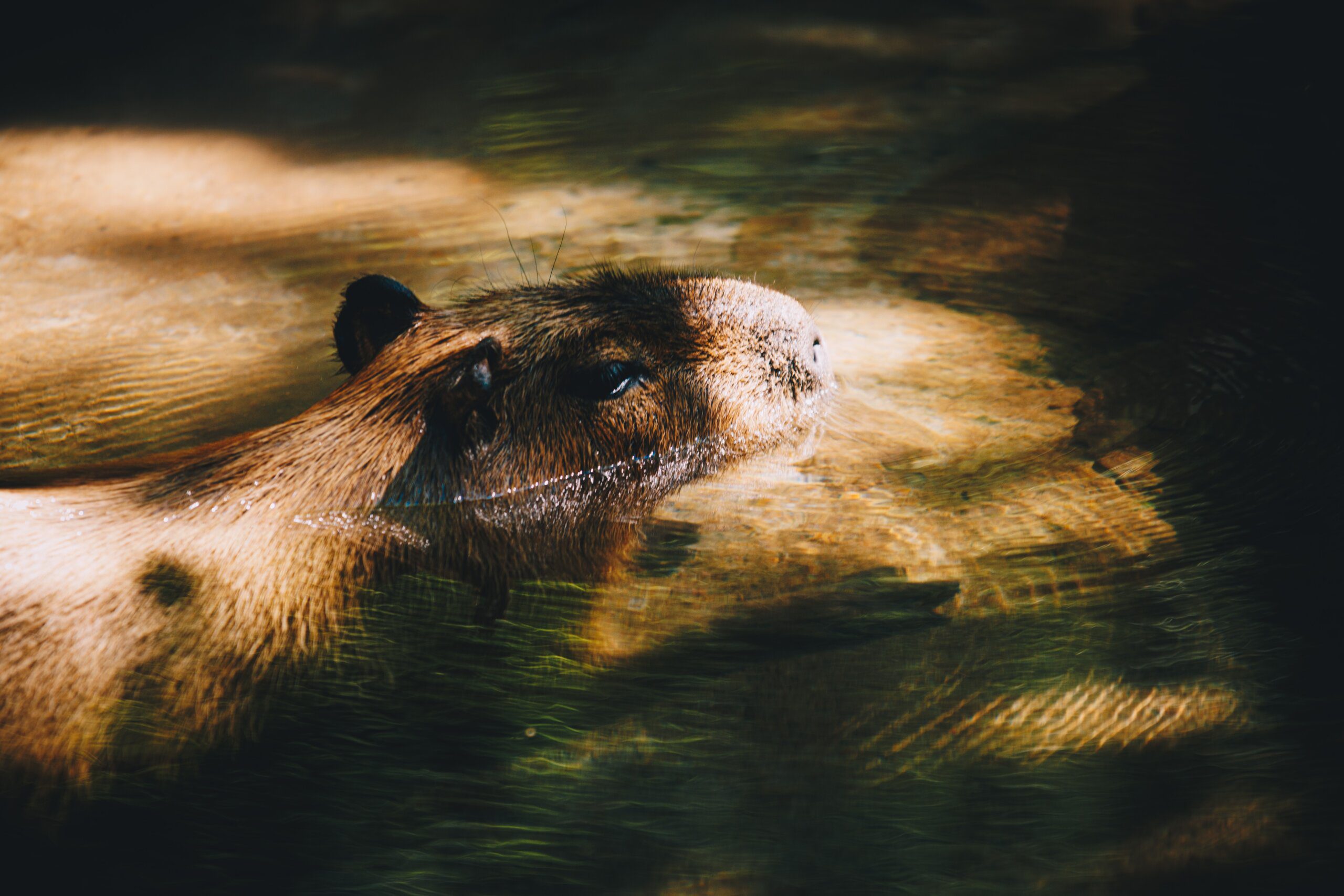Imagine having a furry, friendly, and surprisingly large companion by your side. If you’ve ever wondered if it’s possible to keep a capybara as a pet, look no further. This article will shed light on the legality of owning these adorable creatures and provide you with essential information to determine if a capybara is the perfect fit for you. Get ready to discover whether you can embark on a one-of-a-kind pet ownership journey with these lovable rodents who just might become your new best friend.

What is a Capybara?
Physical Description
Capybaras are the largest rodents in the world, resembling giant guinea pigs. They have a stocky build and can reach an impressive length of up to four feet and weigh as much as 150 pounds. Known for their barrel-shaped bodies, short legs, and webbed toes, capybaras are well adapted for their semi-aquatic lifestyle. Their fur is coarse and can range in color from brown to gray, and they have large, round eyes and a distinctive blunt snout.
Natural Habitat
Capybaras are native to South America, specifically in regions such as Brazil, Venezuela, and Colombia. They are found in various habitats, including rivers, marshes, and densely forested areas. These herbivorous mammals are well adapted to life in and around water, as they are excellent swimmers and can stay submerged for several minutes to avoid predators.
Behavior
Capybaras are highly social animals and are often found in large groups known as herds or groups. They are diurnal, meaning they are most active during the day. As herbivores, they primarily feed on vegetation such as grasses, aquatic plants, and fruits. Capybaras use various vocalizations, including purring, barking, and whistling, to communicate with each other and establish their social hierarchy. They also engage in mutual grooming, which helps strengthen social bonds within the herd. Overall, capybaras are known for their gentle and easy-going nature.
Legality of Keeping Capybaras as Pets
Categorization as Exotic Pets
Capybaras are considered exotic pets due to their unique characteristics, sizable adult size, and specific care requirements. Exotic pets are animals that are not commonly kept as household pets and may require specialized care. Given the capybara’s size, owning one requires a significant commitment of time, effort, and resources.
Legal Requirements and Permits
Keeping a capybara as a pet may be subject to legal requirements and permits, depending on your jurisdiction. It is essential to familiarize yourself with these regulations to ensure compliance. Laws surrounding exotic pet ownership vary widely, and it is crucial to research and understand the specific guidelines within your locality.
Restrictions by Jurisdictions
Different jurisdictions may have varying restrictions on owning capybaras as pets. Before considering a capybara as a pet, it is essential to research and understand the regulations within your area. Some jurisdictions may outright prohibit capybara ownership, while others may require permits, licenses, or certification. It is vital to abide by these rules to ensure the well-being of both the animal and yourself.

Capybara as an Exotic Pet
Unique Considerations
Owning a capybara as a pet comes with unique considerations. Their size, social nature, and specialized care requirements make them distinct from more conventional pets. It is crucial to understand these factors and assess whether you can provide a suitable environment and meet their needs.
Responsibilities and Challenges
Capybaras require a considerable amount of care and attention. They need a spacious and secure enclosure, opportunities for social interaction, proper nutrition, and regular veterinary care. Additionally, capybaras are social animals and may need companion animals to thrive, which adds another layer of responsibility.
Suitability as a Pet
Capybaras can be suitable pets for individuals or families who have the time, resources, and commitment to provide for their unique needs. They are intelligent, social animals that can form strong bonds with their owners. However, it is crucial to consider the size, social interaction requirements, and specialized care they need before deciding if a capybara is the right choice for you.
Legal Requirements and Permits
Obtaining a Permit
Depending on your jurisdiction, owning a capybara may require obtaining a permit. Permits are legal documents that grant you the authorization to possess and care for an exotic animal. These permits are typically issued by the appropriate government regulatory agencies responsible for overseeing exotic pet ownership.
Application Process
The application process for obtaining a permit may vary depending on your location. It usually involves filling out an application form and providing detailed information about yourself, your premises, and your capabilities in caring for an exotic animal. This process may also include a site inspection to ensure that your facilities meet the required standards.
Facility and Enclosure Standards
Capybaras require spacious and secure enclosures to ensure their safety and well-being. The enclosure should have ample space for the capybara to roam and incorporate a swimming area, as these semi-aquatic animals enjoy swimming and soaking in water. Additionally, the enclosure should provide sufficient protection from predators and should be designed to prevent escape.

Restrictions by Jurisdictions
Federal Regulations
In some countries, there may be federal regulations governing the ownership of capybaras and other exotic pets. These regulations are in place to protect both the animals and the public and may include restrictions on specific species, the number of animals allowed, and the required permits or licenses.
State Regulations
Within countries, individual states or provinces may have their regulations regarding capybara ownership. These regulations may vary significantly, ranging from a complete ban on ownership to specific permit requirements and restrictions. It is crucial to research and understand the regulations specific to your state or province to ensure legal compliance.
Local Regulations
Even within states or provinces, local municipalities may have additional regulations or restrictions regarding capybara ownership. These regulations may include zoning restrictions, specific enclosure requirements, and permit requirements. It is essential to contact your local authorities to understand the specific regulations within your area.
Benefits of Owning a Capybara
Social Interaction
Capybaras are highly social animals, and owning one can provide a unique opportunity for social interaction. They can form close bonds with their owners and other companion animals. The social nature of capybaras allows for shared experiences and can create a strong sense of companionship.
Therapeutic Benefits
Interacting with capybaras can have therapeutic benefits. Their calm and gentle nature can provide emotional support and alleviate stress. Many individuals find comfort in having a capybara as a pet and consider them to be an invaluable source of companionship and emotional well-being.
Educational Value
Owning a capybara can be an educational experience, especially for children. It provides an opportunity to learn about these fascinating animals, their natural behaviors, and their specific care requirements. Caring for a capybara can teach responsibility, empathy, and respect for the natural world.
Risks and Challenges of Owning a Capybara
Health Concerns
Capybaras, like any living creatures, can experience health issues. They may be prone to certain diseases and require regular veterinary care. It is important to ensure a healthy diet, provide proper enrichment, and schedule routine check-ups with a veterinarian experienced in exotic animal care.
Habitat Requirements
Capybaras have specific habitat requirements to ensure their well-being. They need access to a swimming area, as this is essential for their physical and mental stimulation. Additionally, capybaras require a large, secure enclosure that allows for both social interaction and adequate exercise.
Specialized Care
Capybaras have unique care requirements that may differ from more common pets. They need a diet consisting of fibrous vegetation to support their digestive system properly. Additionally, they require socialization with both humans and other animals to thrive. Providing the necessary specialized care can be time-consuming and requires knowledge and commitment.
Alternative Pets with Similar Characteristics
Hamsters and Guinea Pigs
For individuals who desire a smaller pet with similar characteristics, hamsters and guinea pigs can be excellent alternatives. Like capybaras, they are herbivorous, social animals that require proper diet, social interaction, and a suitable enclosure. However, their smaller size makes them more manageable for individuals who may not be able to accommodate a capybara’s size requirements.
Rabbits
Rabbits are another alternative pet that shares some characteristics with capybaras. They are herbivores and can form strong bonds with their owners through regular social interaction. Rabbits require a well-rounded diet, appropriate housing, and regular veterinary care. Their smaller size and adaptability to indoor living make them a popular choice for those seeking a pet with similar qualities to a capybara.
Chinchillas
Chinchillas are charming and social rodents known for their soft fur and playful personalities. Like capybaras, they require a sizable enclosure, social interaction, and a suitable diet consisting mainly of vegetation. Chinchillas are particularly active during the evening and night, which may suit individuals with alternative schedules. While differing in size from a capybara, they offer opportunities for unique and engaging interactions.
Proper Care and Maintenance
Feeding and Diet
Capybaras require a diet consisting mainly of grasses, hay, and fresh vegetables. It is essential to provide a well-rounded and nutritionally balanced diet to ensure their health and well-being. Fresh water should always be available, and specific dietary requirements or restrictions should be discussed with a veterinarian knowledgeable in exotic animal care.
Enrichment and Exercise
Capybaras need access to a large enclosure that allows for both social interaction and exercise. Providing ample space with various hiding spots, toys, and opportunities for exploration can enrich their environment. Regular interaction with both humans and companion animals also contributes to their emotional and mental stimulation.
Veterinary Care
Regular veterinary care is essential for capybaras to ensure their health and detect any potential health issues early on. It is important to consult with a veterinarian experienced in exotic animal care to schedule routine check-ups, vaccinations, and address any specific health concerns. Additionally, maintaining proper dental hygiene is crucial, as capybaras’ teeth continuously grow throughout their lives.
Conclusion
Owning a capybara as a pet can be a rewarding experience for those who are prepared to meet their unique needs. Prior to considering a capybara as a pet, it is essential to research the legal requirements and permit processes in your jurisdiction. Owning a capybara requires a significant commitment of time, resources, and specialized care. However, the social interaction, therapeutic benefits, and educational value they provide can make them a delightful addition to the right household. Ensure you fully understand the responsibilities and challenges associated with keeping a capybara before making a decision.



